Is It Tougher To Get Good Tone Now vs. Then?
Having Less Older Gear = Better Tone?
We live in an era of guitar gear nirvana. We can literally get any piece of gear at any price point, today, overnight, whenever. If you buy from one of the big boxes, you can even get something, try it out and return it! Cool…but has all of this resulted in less good tone? And is good tone in fact harder to get now?
This line of thinking popped up fresh for me during a conversation with producer Dave Cobb. Dave recently produced and played most of the guitars on an old-school-sounding rock record by a new band called Black Robot (more on that in a future post). He’s all about vintage tone, and knows how to get it: with old gear.
For the Black Robot tunes he used an old Les Paul with a real Gibson PAF and a T-Top (reversed from Jimmy Page), a ’67 Marshall 50-watt head and a ’70s Marshall cab. Think that would sound good? Duh!
But why did he use the old stuff? Nostalgia? I mean, this is the modern era – gear nirvana, studio wizardry and all that. Can’t you get that type of tone with modern guitars, pickups, amps and recording equipment?
We of course know that vintage gear can be better/great (some of it, not all of it), but I used to think that the recorded tones we heard from the ’60s and ’70s were more a case of those bands and producers doing the best they could with the gear of the day – kind of like starting a fire with flint rather than a Bic lighter. But Dave had a totally different perspective.
I told him that to my ears, a convincing old-school rock tone seemed tough to get these days, the latest AC/DC record being a notable example. So I asked him whether getting those tones is now tough, and why that would be since I thought people were just trying to muddle through with what they had back then.
No, he said. Everything was better back then. “The guitars were American-made and made at the height of American craftsmanship, the Marshalls were made with quality parts, and you had quality players – you couldn’t record a record unless you had a high level of ability. Plus studios had the best mics in the world, they had good consoles and tape.
“Now we might have more stuff available, but it’s not as high-quality.”
When he says it, it sounds obvious. But when you think about bands using guitars and amps designed for clean sounds recording onto four tracks in studios designed to capture the clean tones of the day when the word “software” didn’t even exist yet, it sounds a little…perplexing…that that stuff was better than the stuff we have now.
Older guitar players – Page, Beck, Townshend, Blackmore, Iommi, etc. on up to EVH – relentlessly experimented with their “primitive” rock gear to get it to sound the way they wanted it to sound. In other words, their choices were limited so they developed ways of getting tone – including using their fingers – that worked for them. No getting gear FedExed from Guitar Center for them.
Now many of us run out and buy gear to help us sound like so-and-so (guilty!) or sound like whatever tone we want to hear – but would limits be better? Would it be better to play as much as possible and relentlessly experiment with a very limited amount of gear? Would we get better, woodier tones and more unique tones?
Okay, maybe it would better, but less fun. I’d probably need a GearHeads Anonymous group to help me purge some of my gear. And I seriously need a couple of new amps – plus there’s this guitar I’ve got my eye on….
Notable
> To see a list of some of Dave Cobb’s old-school recording gear, go to his website and click on Gear.
Category: Black Robot, Dave Cobb, Gibson, Humbuckers, Les Paul, Marshall, Rants







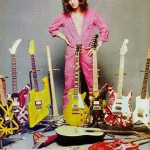
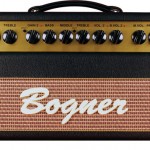
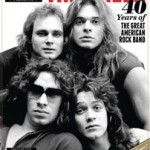
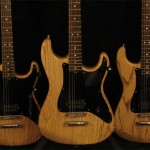


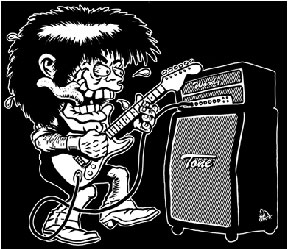

You've pointed out something that I've been thinking about from another angle….that the internet has ruined guitar innovation. There's a saying that limitations foster creativity–they force people's imaginations to solve problems and create in unique ways.
Because it's now so easy to find tons of info about the exact gear and signal chain an artist used, people become obsessed with getting the gear that, in their mind, quantifies a certain sound. As a result, there is no down-and-dirty experimentation, or discovering a certain guitar into a certain pedal, EQed a certain way, will get you a new, unique tone; i.e., finding a different way to skin the cat.
The result is that people don't work with what they have to get something great–they keep swapping until they get the exact sound someone else had, and they keep taking the path of least resistance to get there. The result is that no one is coming up with their own definitive tones and sound.
I agree with this, now that we can get anything we want, and especially digital effects which were starting to get big when I hit my teenage years (like the Zoom pedal circa 1998 that gave 60 different sounds for less than $100.) I played that Zoom pedal all the time and thought it sounded great. I hooked it up a couple of years ago and I could barely listen to it after finding classic vintage tones. It was through the limited gear I could afford and time to appreciate it (because it was all I had) that I learned about building a great tone of my own rather than copying something from a POD or digital amp.
I think one thing that we can count in terms of innovation these days is budget. When I was in high school, I had a job working every minute that I could until I had a candy apple red Hondo Les Paul and a Squier Fat-Strat. I was into Keith Richards in a huge way, and very into Ace Frehley and EVH. Neither of these guitars, nor my Music Man HD-Reverb amp head (with the ever present orange Boss DS-1 distortion pedal) made me sound like any of my big three guitar heroes. This was also the era of Limp Bizkit, Korn, rap rock, 7-strings tuned down so low they sounded like bigfoot farting, etc. and I lucked out and found a black '74 Telecaster Custom with a rosewood fretboard, the humbucker in the neck and single coil in the bridge used that I could afford and I had my first really good guitar. My first dream guitar. This was my ultimate Keef guitar, and I was very proud and lucky to have it. And despite having these things to try to be like my heroes, something else happened. I started developing my own tone, my own style. My own blend of their stuff into something that was uniquely mine. And even though gear is more affordable now in a lot of ways than it was then (Modeling amps were far beyond my budget, as were a nice little tube amp. I picked up a Vox AC-4 recently, which I could have afforded then at the prices something like that would have gone for 10 – 12 years ago. Something like that with the built-in Variac didn't exist back then as far as I knew, and if it did, I couldn't afford it) but I sincerely hope that gear doesn't get to the point where the average kid in a band can afford a reasonable facsimile of EXACTLY what his hero uses. Don't get me wrong, I wanted a nice Tele, a Peavey Wolfgang, a tweed Bassman 4×10, a modded Marshall stack, all the great stuff. And if somebody had told me that they hoped I couldn't afford a reasonable version of that gear I would have been pissed. But I was forced to improvise. I was forced to work with my gear and learn how to get great sounds with limited equipment. I was forced to blend my styles together and practice hard for hours a day to get the sounds, to get the feel, to get the notes. I found many techniques and little playing tricks that worked for me then and I still do and still use to this day. I was forced to get inventive, try things out that I wasn't sure would work, build up sounds that ended up being my own and being something that I could be proud of and know were my own and develop my way of doing things because I couldn't afford to have a superstar's rig.
And I hope that there's kids out there now with the desire despite their limited means and non-top shelf gear who improvise and end up with as many happy mistakes as I did and find out that copying somebody's rig won't make them sound good. Having gear that technically wasn't "right" for what I wanted to do forced me to explore what I could do to get Keith tones from a humbucker equipped Strat, from a Japanese Les Paul, how to best get Eddie's tone from a Korean fat Strat and an amp that was nothing like a Marshall, and it taught me so much.
Maybe this comment will only make sense to me, maybe other people completely disagree. But if I could have afforded all the stuff I wanted back then to be just like the guys I listened to every night, at best I'd be a pale imitation. Thanks to being forced to make due and work with the gear to get the things I wanted out of it I was able to forge ahead, learn exactly what my instruments were capable of, make beautiful mistakes that turned out to be miracles in my playing and sound. I miss the magic of having a little bit and making something beyond what I thought I could and I hope kids still find that today.
I agree. The modern term "Option Anxiety" also comes into play here. There's just so much gear out there these days ranging from quality to crap, it can be hard for up and coming players to make the right choice.
Plus, to add fuel to that fire, companies are always trying/forced to cut corners these days with the result that the quality of gear goes down.
re: … but I used to think that the recorded tones we heard from the ’60s and ’70s were more a case of those bands and producers doing the best they could with the gear of the day – kind of like starting a fire with flint rather than a Bic lighter.
Have you ever tried the "rubbing two sticks together" method :). Good stuff, cheers
My favorite example of doing more with less is Terry Jones describing how the Monty Pythons realized they didn't have the budget for real horses when they were filming Holy Grail, so they came up with the clip-clopping coconut shells bit. (Hilarious!) So I try to keep my gear appetite in check. I've been something of a traditionalist, anyway. I have a Gibson SJ (1969) acoustic and an American-made Strat (about 15 years old). I changed out the Strat pickups, in favor of some Tex-Mex pickups I got in a trade. They sound better.
While I think multi-effects processors are OK in the right hands, I think natural distortion helped out with a stomp box or two sounds better. I run my Strat into a Fulltone Fat Boost, then into a Deltalabs TO-1 overdrive pedal, then through an old Lexicon Alex set for Echo. That's the whole effects chain. From there I just DI into my board if I'm recording, or go into my recently recovered 1966 Supro Trojan amp (still with the original tubes!!). I'm less and less happy with my solid state Fender Princeton Chorus amp. I guess I'll keep it around. It's louder, and the resale value wouldn't be that great, but I do like the Supro better.
I think you should add vintage EXPENSIVE gear. Nothing I could afford or heard in the music stores in the 70s sounded like the heroes on the records. But there’s so much truth to this idea of scarcity=glory. I was scared of the unseen pit monster in Land of the Lost. I found out this was an innovation of budget. I could have pulled my hair out watching the DVD extras where they makers said they wish they had the budget and Jurassic Park technology to make it a “better” show. So no doubt there’s a golden age that’s gone. I might miss a few quirky things, I found out about tubes when I was 27, and quality pickups last year thanks to HarmonyCtrl and Woodytone. I think it’s easy to focus on the success of the past,,but there were lots of crappy things going on then also. My lespaul SUCKED then, but my Korean sg with 70s style Dimarzio SuperDistortion KICKS now bcuz it’s good, it’s the right idea, not just a symptom of vintage quality. One thing i try to tell youngr people is that we had broader tastes bcuz we listened to to the inbtween lp tunes BUT bcuz we didnt have as much communications, we also believed some really stupid OUTThERE myths about KISS, HALEN, ZEP etc. Today, there are more products, more players, buy the expensive stuff sounds just as great in the right hands. Yet another insightful thread!! Damn I love this site.
You can get a good sound pretty easily these days, and affordably. Back in the day a Les Paul and Marshall was a hefty chunk o change and you didn’t necessarily get the same sound as your idols, who often had a mod or two up their sleeves. Modern gear gets you somewhat close a lot easier, but if you want the real deal you gotta spend the cash, the time and the effort. Knowing how to tweak your gear also helps tremendously. To do that right, you should be able to describe the sound you want (or don’t want): gains too fizzy, muddy bottom, piercing treble etc. I modded my deluxe reverb, listened, tweked some more until I got it were I wanted it.
So I would say you have a better chance of getting your sound today, provided you can wade through your options,and constantly tweak.